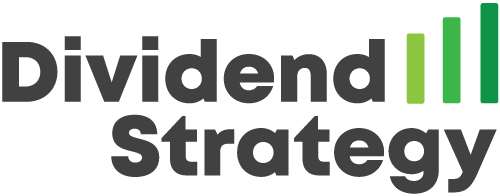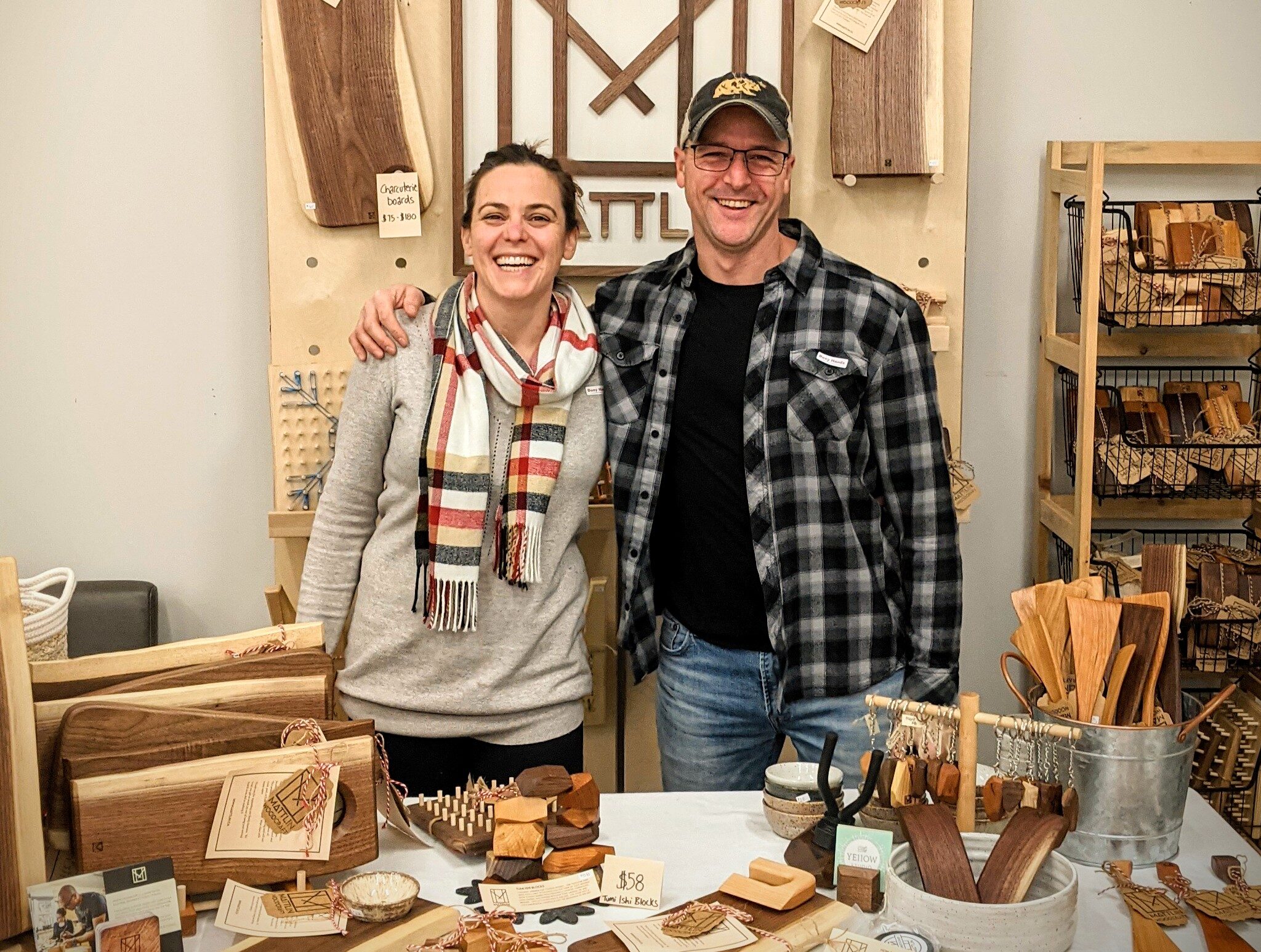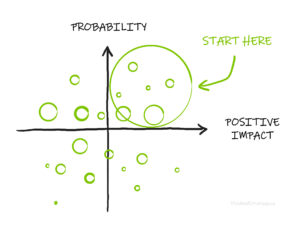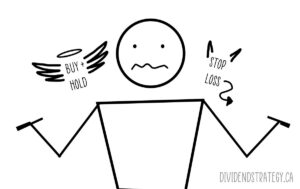This past weekend, my wife and I did something we’ve never done before – we were vendors at a craft show here in Picton, Ontario. For years we’d dreamed of building a business together, but my hectic career in medicine and four young kids at home just wouldn’t allow it, not to mention the fact that a culture saturated with disposable furniture (thanks Ik*a) has made it difficult for woodworkers to put food on the table.
But financial independence changed things, and a little over a year ago we finally did it, we started Mattlin Woodcraft. I do the building and my wife helps with everything else from design to administration. Even the kids pitch in from time to time. The hours I spend in my workshop are a blissful combination of challenge and reward. At the show, sitting at our table with my favourite person by my side, meeting other creators, and having customers happily spend their hard-earned money on items we created was a dream come true.
Just for fun, I did a rough calculation of my hourly rate as a woodworker versus a physician. The results and my reaction to them might surprise you, especially if you’re a high earner. I took a 90% pay cut – and I couldn’t be happier.
Blinded by wages
I know a lot of high earners who balk at the idea of working for a wage far lower than what they are used to earning. Even if they hate the higher paying work and love the lower paying work, the income differential alone can dissuade them from pursuing their passion.
I wonder if this happens because we get so used to money being the main, maybe the only justification for the exhausting work we do. For many of us, money becomes the currency with which all work is valued. This is myopic. The value of what we choose to work at spans far beyond the paycheck that is attached to it.
I believe we need to ask ourselves a simple question: What is money for?
What is money for?
Whether it’s real or digital, money is just paper. It represents stored value, but you can’t eat it, wear it or live in it, so you have to use it as a tool to create other things that actually do have value.
So, what is money for?
Most people think it’s for buying things. We all need to buy things. But once the essentials are taken care of – food, shelter, clothing, some entertainment – additional spending on consumer items doesn’t make us any happier. Why? Because we trick ourselves into thinking that a new phone or car or renovation is important, that buying it will give us lasting contentment. But they don’t. We quickly adapt. The special becomes normal and we’re just as unhappy. So, money is not just for buying things.
The truth is, we’re not after the money. Dig a little deeper and we don’t really want the “stuff”. We’re wanting a feeling – the feeling of contentment, connection, and meaning. How do we get that?
It sounds esoteric, but finding that path is not as hard as it seems. You just have to take a step back and figure out what is important to you. Not what our culture says you should care about (new kitchens, iPhones, Teslas, etc. etc.), but what matters to you, your values.
Why values matter
Values are not things. If you are tempted to say, “I value living in a nicer house” or “I value driving fast cars”, try asking yourself “Why?”. Keep on asking yourself why until you get to a fundamental belief.
An example might help. Yours will differ, but a few of my most important values are: Close family relationships. Financial security. Creating things. Learning new skills. So, I can answer the question, “What is money for?” very easily – the purpose of money is to allow me to spend time with my wife and kids, provide us with a sustainable and comfortable (though not luxurious) lifestyle; allow me the time to make things; and the freedom to pursue new interests as they arise.
“Happiness is when what you think, what you say, and what you do are in harmony.”
Mahatma Gandhi is famous for saying, “Happiness is when what you think, what you say, and what you do are in harmony.” Compared to Gandhi, I’m selfish, confused and foolish, but I can feel happy with a 90% pay cut because I know what’s important to me. With Mattlin Woodcraft I get to spend time with my wife and connect with other artisans in the community, I get to design and create new things all the time, I am constantly learning new skills – from woodworking techniques to building a social media portfolio to selling in-person. And we can do it all without financial pressures because, even though we’re not rich, thanks to aggressive saving and dividend investing, we’re financially secure.
If I’m making $20/hr, that’s fine because our little business is not for the money, the money allows us to run the business.
Where does your validation come from?
A lot of us judge our self-worth using external factors: What do others think of me? Do I look successful? What is my net worth today? The problem with that – and I say this from experience – is that how you feel about yourself is pushed and pulled by things that are external, beyond your control. One of the unexpected benefits of financial independence is the ability to step back and think about what you actually care about, then spend time on those things. That is internal validation and that’s what money is for.
The purpose of money is to buy time
Time is the limited resource; we are all going to run out of it. Sure, for years we have to trade our time for money. That’s what work is; being compensated for adding value to society. But if we do that intentionally by doing good work that we’re proud of, not spend mindlessly on crap we don’t need, and save/invest wisely so that our money grows into a sustainable income stream, then we put ourselves in a position to build on our values, whatever they may be.
Remember, every dollar you save is a piece of your future you are taking control of.
But once you have enough, ask yourself, “What is this money for?”
If you can answer that question, you’ll have a purpose that transcends work, wages, and luxuries.
Because, at the risk of alienating those who come here to learn about money, it’s not about the money.
what I've been reading
Mark at My Own Advisor wrote an excellent response to a recent Financial Post article. The article was about a few financial advisors’ response to a young couple who achieved financial independence and retired early. Frankly, their commentary revealed a shocking lack of appreciation for how capable and secure the couple actually are:
Banker on FIRE wrote a great piece called “A Simple Framework for Getting Rich”. My simple brain appreciates when apparently complex matters are broken down into their essential components, so I really liked his observation that there are really only three ways to get wealthy: 1. Earn more than other people, 2. Save more than other people, or 3. Compound your money for longer than other people
Lastly, as a result of a recent Facebook (Meta?) fight with some diehard indexers who think dividend investing is bunk, I am diving into the other side of the dividend investing debate. When other smart people hold different opinions, there is almost always something to be gained by listening hard to what they have to say. In this case, I’m turning to a writer/investor I respect, Dan Bortolotti, and working my way through his series of posts on “Dividend Myths”:
https://canadiancouchpotato.com/2011/01/18/debunking-dividend-myths-part-1/
Happy December everyone.
A sincere thank you to those who have already donated – I process each one individually and appreciate your generosity. It takes time and real money to maintain this site. If you find this information useful, please consider donating. I’m not trying to get rich . . . 50% of donations are given to Doctors Without Borders. Thank you!




The best part of this post, and all the evidence needed, is the picture of how happy you both are.
Congratulations!
Ha ha – yeah, there’s evidence and then there’s evidence 🙂
Congratulations, as a fellow MD I can say you have your head firmly screwed on….and your priorities spot on….credit to your wife also…
Nice to hear from a fellow MD, Lyndon! And, yes, huge credit to my wife. I’m lucky in many ways.
Honestly Matt you should do wellness advice for fellow MD’s and the like. As always m friend thank you for your articles…superb!!!
Great to hear from you, Benj. I’m always happy to discuss new ways I might be able to help.
How appropriate your title is (90% pay cut). Are you prescient? LOL
I checked out my divs today, pay on the 10th, and had a 90% cut. So only I got $400
An obvious clerical error as I checked ou the web site and they had issued $0.10 per share.
Guess someone thought the “0” wasn’t worth anything.
As to your article I have forwarded it to my children. Hopefully they will incorporate it in to their lives as well. My youngest is thinking about “retiring” ASAP.
RICARDO
I love hearing about these posts being shared. Thanks for the comment, Ricardo.
Nice Blog! Have you made any dining room tables that are for sale? Cheers!
I have to admit, there is one luxury I really do fantasize about – a larger workshop! Mine is too small for large items like dining tables 🙁
So inspiring Matt !! thank you so much for sharing.
Thanks for the feedback, Gus 🙂
Thank you very much for the shout-out, very happy you liked the post!
All the best
Damian (aka Banker on Fire)
Congradulations Matt on having the sensibility to be happy and focused on that other than just money! Life is very short and tommorrow is not guaranted! Live, Love,be happy! Cheers!
I work in medicine w/ four young children (4 in 7 years) and a husband in a demanding career, too. Very interesting blog!
Pingback: The Sunday Best 01/23/2022 - Physician on FIRE